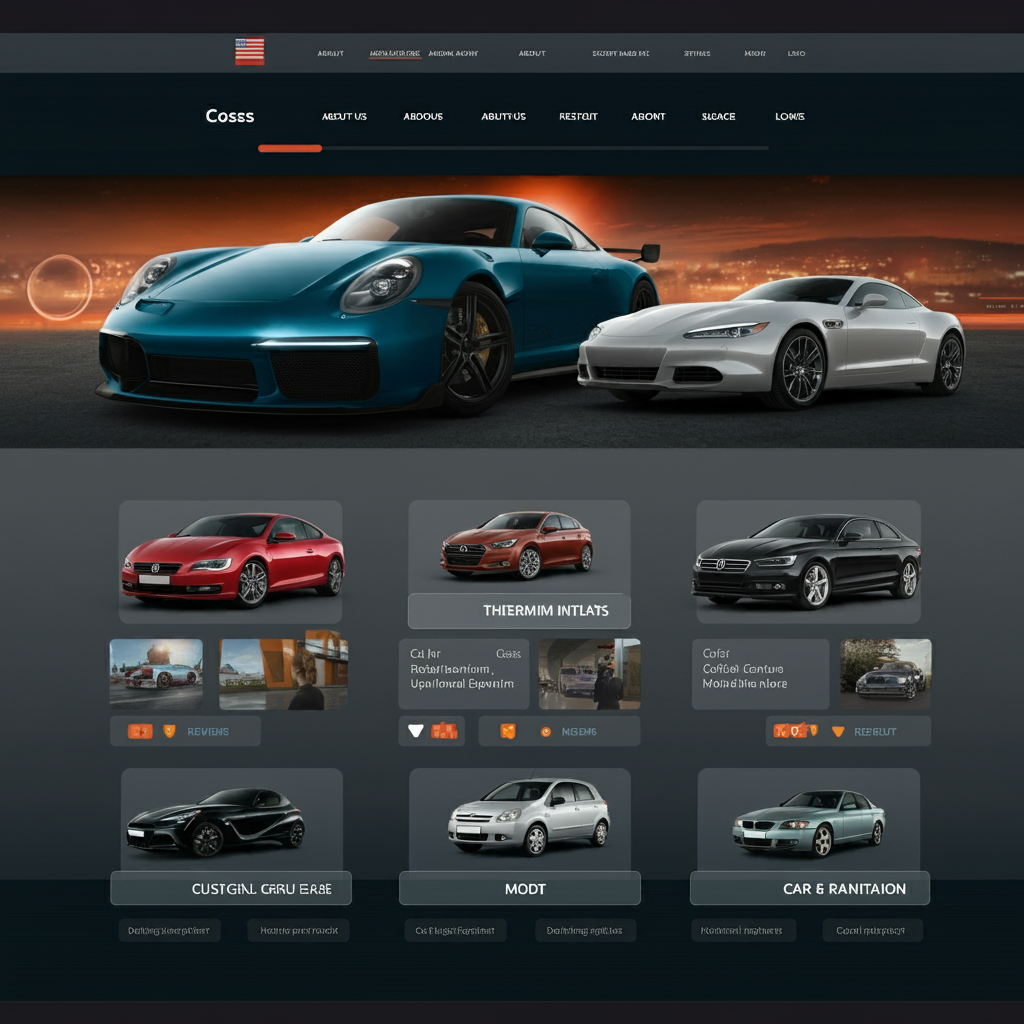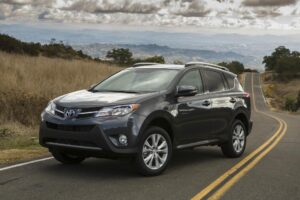Are you in the market for a new or used vehicle but unsure where to start? With so many options and deals available, how do you know you’re getting the best value for your money? Whether you’re looking for a fuel-efficient sedan, a rugged SUV, or a powerful truck, finding the right vehicle can be overwhelming. However, with the right approach, you can not only secure the perfect car but also ensure you’re getting a great deal.
In this guide, we’ll focus on the key benefits of doing your research, comparing offers, and understanding financing options. By following these tips, you’ll not only save money but also enjoy long-term value and reliability with your new purchase. Let’s explore the advantages of taking a strategic approach to car buying, so you can confidently drive away with the best deal possible.
- Toyota Car Buying Guide: For US Residents
- How to Choose a Used Toyota: Tips and Considerations
- Conclusion: Why Choose a Toyota?
- Honda Car Buying Guide: For US Residents
- How to Choose a Used Honda: Tips and Considerations
- Conclusion: Why Choose a Honda?
- Ford Car Buying Guide: For US Residents
- How to Choose a Used Ford: Tips and Considerations
- Conclusion: Why Choose a Ford?
Toyota Car Buying Guide: For US Residents
1. Why Choose a Toyota?
Toyota is renowned worldwide for its reliability, durability, and excellent fuel efficiency. In the US market, Toyota offers a diverse lineup, from eco-friendly hybrids to rugged SUVs and dependable trucks. Some of the most popular models include the Camry and Corolla for families, the adventurous RAV4 SUV, and the reliable Tacoma pickup truck.
2. Steps to Buying a Toyota in the US
Buying a Toyota vehicle in the US involves several key steps. Here’s a breakdown of the process:
a. Choose the Right Model for Your Needs
The first step is to identify the model that best suits your lifestyle and budget. Whether you need a sedan for family trips, an SUV for outdoor adventures, or a truck for work, Toyota has options to meet your needs. You should also consider fuel efficiency and environmental impact by exploring hybrid or electric models.
b. Decide Between New and Used
Your budget will often dictate whether you buy new or used. New cars come with the latest technology, enhanced safety features, and longer warranties. However, used cars tend to be more affordable. Toyota’s Certified Pre-Owned (CPO) program ensures high-quality used cars that have passed strict inspections.
c. Choosing a Dealership
It’s recommended to buy from an official Toyota dealership. Toyota dealerships offer certified service, ensuring that vehicles are well-maintained. Additionally, online price comparisons and negotiating for deals or incentives at local dealerships can save you money.
d. Explore Financing Options
Toyota Financial Services offers a range of financing options, including loans and leases. Loans provide flexibility with monthly payments and interest rates, while leasing allows you to drive a car for a set period with the option to upgrade at the end of the lease term.
3. After-Sales Support
Toyota dealerships provide after-sales services, such as routine maintenance, recall management, and extended warranties. They also offer roadside assistance, ensuring long-term support for your vehicle.
How to Choose a Used Toyota: Tips and Considerations
Buying a used car can save you money, but it’s essential to know what to look for. Here are some tips to help you select a reliable used Toyota:
1. Take Advantage of Toyota’s Certified Pre-Owned (CPO) Program
Toyota’s CPO program is an excellent choice for buyers seeking peace of mind. These vehicles go through a rigorous inspection process and come with:
- A manufacturer-backed warranty
- Roadside assistance
- Stringent criteria that ensure only the best vehicles are certified
2. Check the Vehicle History
When purchasing a used car, use services like Carfax or AutoCheck to check the vehicle’s history. This will provide valuable information on past accidents, repairs, and ownership history, giving you a better understanding of the vehicle’s condition.
3. Pay Attention to Mileage and Maintenance Records
Mileage is a critical factor when buying a used car. Lower mileage usually means less wear and tear, but regular maintenance is equally important. Ask for maintenance records to confirm that the vehicle has been well-maintained, with regular oil changes and inspections.
4. Inspect and Test Drive the Vehicle
If possible, inspect the car in person and take it for a test drive. Check the exterior and interior condition, and ensure the engine, brakes, and suspension are functioning smoothly. It’s also a good idea to hire a mechanic for a professional inspection if you’re unsure.
Conclusion: Why Choose a Toyota?
Toyota is a trusted name in the US automotive market, known for its reliability, durability, and excellent fuel efficiency. Whether you opt for a new or used car, Toyota’s vehicles offer a combination of cutting-edge technology, advanced safety features, and high resale value.
Here’s why choosing Toyota is a smart decision:
- Proven Reliability: Toyota vehicles are known for lasting long and maintaining their value.
- Fuel Efficiency: Many Toyota models, especially hybrids, provide excellent fuel economy.
- Advanced Safety: With features like Toyota Safety Sense, you get top-of-the-line safety technology.
- Comprehensive Support: Toyota offers extensive after-sales services, including maintenance, warranty coverage, and roadside assistance.
Toyota continues to be a popular choice among US consumers due to its unmatched reputation for reliability, quality, and innovation. Whether you’re buying new or used, you can count on Toyota to deliver a dependable vehicle that meets your needs.
Honda Car Buying Guide: For US Residents
1. Why Choose a Honda?
Honda is known for its reliability, fuel efficiency, and innovative engineering, making it one of the most trusted automotive brands in the US. With a diverse lineup of sedans, SUVs, trucks, and hybrids, Honda offers vehicles that cater to a wide range of lifestyles. Popular models like the Accord, Civic, CR-V, and Pilot are staples in American households, offering a balance of comfort, performance, and technology.
2. Steps to Buying a Honda in the US
Purchasing a Honda vehicle in the US involves a structured process. Here’s a guide to help you through it:
a. Identify the Right Model for Your Needs
Before buying, assess your needs. Are you looking for a compact sedan like the Civic for commuting, or do you need a family SUV like the Pilot? If you’re interested in reducing your carbon footprint, consider Honda’s hybrid models like the Accord Hybrid or the CR-V Hybrid. Understanding your requirements will help narrow down the choices.
b. Decide Between New and Used
Buying new ensures that you receive the latest technology and a full warranty. However, used cars are more budget-friendly. Honda’s Certified Pre-Owned (CPO) program offers the best of both worlds, providing vehicles that have passed strict inspections and come with a limited warranty and roadside assistance.
c. Choosing the Right Dealership
It’s advisable to purchase from an official Honda dealership, which ensures certified service and support. Dealerships often offer competitive pricing and promotions, so researching online and visiting multiple locations will help you get the best deal.
d. Financing Options
Honda Financial Services offers various financing solutions, including low-interest loans and lease programs. Leasing allows you to drive a new car for a fixed term with lower monthly payments, while buying through a loan gives you full ownership at the end of the payment period. Compare the two to see which suits your budget and lifestyle.
3. After-Sales Service and Maintenance
Honda dealerships provide extensive after-sales services, including regular maintenance, recalls, and warranty services. You can also sign up for Honda’s Extended Warranty and Honda Care programs, which cover various services like roadside assistance and repair costs.
How to Choose a Used Honda: Tips and Considerations
When buying a used Honda, it’s important to be thorough in your selection to ensure you get a reliable vehicle. Here’s what you should keep in mind:
1. Take Advantage of Honda’s Certified Pre-Owned (CPO) Program
Honda’s CPO program is an excellent choice for buyers who want the reliability of a new car but at a lower price point. CPO vehicles have undergone a 182-point inspection and come with:
- A 7-year/100,000-mile powertrain warranty
- A 12-month/12,000-mile limited non-powertrain warranty
- Roadside assistance and a free vehicle history report
2. Check the Vehicle History
When considering a used car, always check the Carfax or AutoCheck report to verify the vehicle’s history. This will provide details about previous accidents, repairs, and the number of owners. Knowing the history will help ensure you’re making an informed purchase.
3. Consider the Mileage and Maintenance Record
Mileage is an important factor when buying a used car. While lower mileage is generally better, the car’s maintenance record is even more crucial. A well-maintained car with higher mileage can be a better buy than one with lower mileage but poor service history. Look for documentation of regular oil changes, brake service, and other essential maintenance.
4. Test Drive and Inspect the Vehicle
It’s essential to test drive any used car you’re considering to ensure it drives smoothly. Pay attention to how the engine sounds, how the brakes feel, and how the car handles. Additionally, inspect the vehicle’s exterior and interior for signs of damage or wear. If you’re not sure, consider hiring a mechanic to do a professional inspection.
Conclusion: Why Choose a Honda?
Honda remains one of the top choices for American drivers due to its exceptional combination of reliability, performance, and value. Whether you’re buying new or used, Honda vehicles are known for holding their value and delivering long-term dependability.
Here are the key reasons to choose a Honda:
- Reliability: Honda cars are built to last, often reaching 200,000 miles or more with proper care.
- Fuel Efficiency: Honda offers some of the most fuel-efficient vehicles in their class, from hybrids to gasoline-powered models.
- Resale Value: Honda cars consistently rank high in resale value, making them a smart investment.
- Advanced Technology: Honda models are equipped with modern safety features, like Honda Sensing, which includes collision mitigation and lane-keeping assistance.
With a strong reputation for safety, reliability, and innovation, Honda continues to be a leading choice for drivers in the US. Whether you’re buying a new or used car, Honda offers a wide range of vehicles to suit any need, backed by a solid warranty and excellent after-sales support.
Ford Car Buying Guide: For US Residents
1. Why Choose a Ford?
Ford has been a key player in the American automotive market for over a century, known for its innovation, durability, and diverse lineup of vehicles. Whether you’re looking for a family SUV like the Explorer, an efficient sedan like the Fusion, or a powerful truck like the F-150, Ford offers a vehicle to fit any lifestyle. With a strong commitment to safety, performance, and cutting-edge technology, Ford remains one of the most trusted brands among US drivers.
2. Steps to Buying a Ford in the US
The process of buying a Ford vehicle can be straightforward if you follow these steps:
a. Select the Right Ford Model
Ford’s lineup includes everything from compact cars to large trucks and SUVs. Identify your needs first:
- Ford F-150: Best-selling truck for those needing power and performance.
- Ford Escape: A compact SUV perfect for families or city driving.
- Ford Mustang: For those who want a thrilling, high-performance sports car.
If you’re environmentally conscious, Ford also offers hybrid and electric options like the Ford Mustang Mach-E and Escape Hybrid.
b. New or Used: Making the Right Choice
New Ford vehicles come with the latest safety features and technology like Ford Co-Pilot360, which includes driver-assistance features like adaptive cruise control and blind-spot monitoring. However, if you’re on a budget, used or Certified Pre-Owned (CPO) Ford vehicles are also an excellent option. Ford’s CPO program includes thorough inspections, warranties, and roadside assistance.
c. Finding the Best Ford Dealership
Ford has dealerships across the US, and buying from a certified dealer ensures access to after-sales services, warranties, and certified parts. Be sure to compare prices online and check for special promotions or financing offers. Visiting multiple dealerships will help you get the best deal.
d. Financing Options for Ford Vehicles
Ford Credit offers several financing and leasing options, making it easier to drive away in a new or used vehicle. Leasing may be a good option if you want lower monthly payments and the ability to switch to a newer model in a few years. If you prefer owning your car, Ford’s loan options offer competitive interest rates and flexible terms.
3. After-Sales Support and Maintenance
Purchasing a Ford from an authorized dealer ensures access to after-sales services like scheduled maintenance, extended warranties, and recall support. Ford also offers FordPass, a mobile app that lets you schedule service appointments, track maintenance, and locate nearby dealerships.
How to Choose a Used Ford: Tips and Considerations
Buying a used Ford can be a smart investment, but it’s essential to take certain precautions to ensure you’re getting a good deal. Here’s how to make an informed decision when buying a used Ford vehicle.
1. Benefits of the Ford Certified Pre-Owned (CPO) Program
Ford’s CPO program offers peace of mind by guaranteeing that a vehicle has met high standards for quality. Certified Pre-Owned Ford vehicles undergo a rigorous 172-point inspection and come with:
- A 7-year/100,000-mile powertrain limited warranty
- A 12-month/12,000-mile comprehensive limited warranty
- 24/7 roadside assistance
- A free CARFAX vehicle history report
2. Checking the Vehicle’s History
When buying a used car, always obtain the CARFAX report or a similar vehicle history report to learn about previous accidents, ownership changes, and maintenance history. This will help you avoid vehicles that have been involved in major collisions or have unresolved mechanical issues.
3. Key Factors: Mileage and Condition
Mileage is a significant factor when evaluating a used Ford. While a lower mileage vehicle is generally preferable, a higher mileage car that has been well-maintained can still be a good option. Look for regular oil changes, tire rotations, and brake service in the maintenance records. You should also inspect the vehicle for any signs of wear and tear, especially on critical components like the engine, transmission, and brakes.
4. Inspecting and Test Driving the Vehicle
Before finalizing the purchase, take the used Ford for a test drive. Check how the car handles, listen for any unusual noises, and test the brakes and acceleration. It’s also a good idea to have the vehicle inspected by a trusted mechanic who can assess the car’s overall condition.
Conclusion: Why Choose a Ford?
Ford has built a legacy of producing reliable, versatile, and high-performance vehicles, making it one of the most trusted brands in America. Here are the top reasons to choose a Ford:
- Built Tough: Ford trucks, like the F-150, are known for their durability and ability to handle heavy-duty tasks, while also offering a comfortable ride.
- Innovative Technology: With features like Ford Co-Pilot360 and their hybrid/electric lineup, Ford is at the forefront of automotive technology and safety.
- Wide Selection: Whether you’re looking for a sports car, family SUV, or work truck, Ford’s diverse lineup ensures there’s a model for everyone.
- Great Resale Value: Ford vehicles tend to hold their value well, making them a solid investment whether you’re buying new or used.
With a proven track record of reliability and performance, along with extensive after-sales support and innovative features, Ford remains a popular choice for American drivers. Whether you opt for a new model or a used Ford, you can count on the brand to deliver a vehicle that meets your needs and exceeds your expectations.







